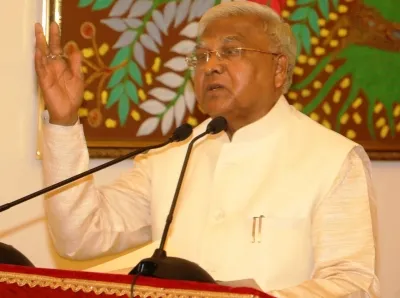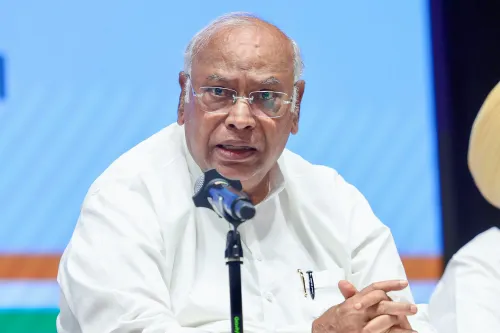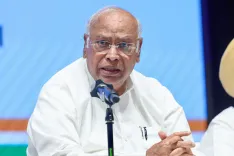How Can We Balance Nature Conservation with Development? MP Guv

Synopsis
Key Takeaways
- Global warming is linked to human interference with nature.
- Forests and wildlife are essential for ecological balance.
- Teaching children about coexistence with nature is vital.
- Small efforts in environmental protection can lead to significant outcomes.
- The theme of Wildlife Week promotes community engagement in conservation.
Bhopal, Oct 7 (NationPress) Madhya Pradesh Governor Mangubhai Patel stated on Tuesday that global warming stems from human interference with nature, highlighting the need for sapling planting at every suitable location.
While addressing the conclusion of the state-level wildlife week event at Van Vihar National Park in Bhopal, Patel stressed the importance of being vigilant in nature conservation alongside developmental initiatives.
"Forests and wildlife are the backbone of our ecosystem, and their survival is intricately connected to the equilibrium of our forests, rivers, and climate. I urge citizens to educate children from an early age about the harmony between humanity and nature," he remarked.
In his address, Governor Patel highlighted the significance of minor contributions toward environmental protection, referencing a Kutch school with 400 students where a teacher couple collaborated with children to construct a tree boundary wall.
"The children became involved, planting saplings together. They even brought leftover water from home to nourish the plants the next day. Over just four years, they completed a significant boundary wall through these small efforts," he shared.
Governor Patel also noted his record tenure as Forest Minister in Gujarat for 18 years.
As the state Governor, he has actively participated in the closing ceremonies for the past four years.
He appreciated the theme of Wildlife Week—'From Conservation to Coexistence'—for promoting engagement beyond conventional wildlife conservation approaches.
He commended the Forest Department and other stakeholders for their dedication to providing environmental education in rural areas, schools, and various communities.
During the event, the annual report 2024-25 from the Madhya Pradesh Tiger Foundation Society, a biodiversity board lapel pin box, the inaugural Bhopal Bird Festival poster, publications related to Grasses of Satpura from Satpura Tiger Reserve, and a Madhya Pradesh bird field guide by Bhopal Birds were unveiled.









